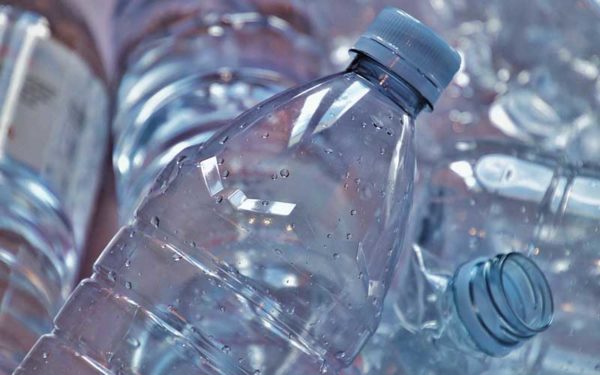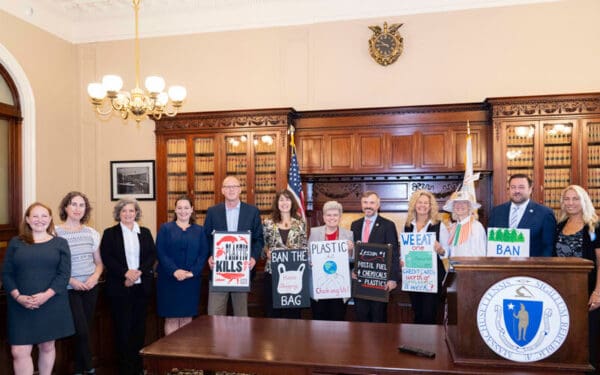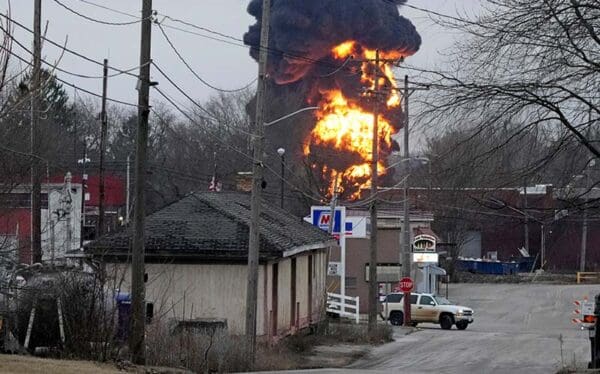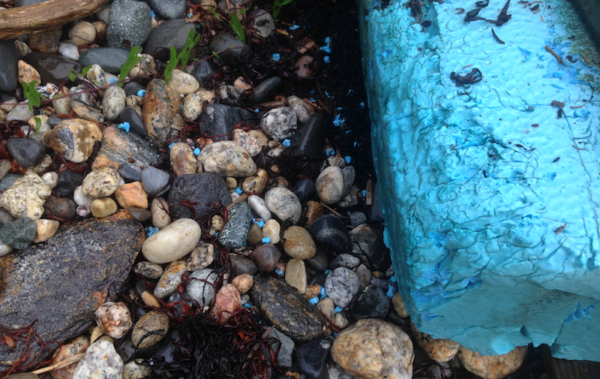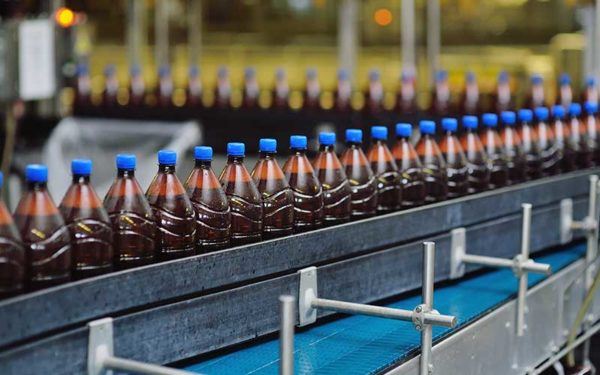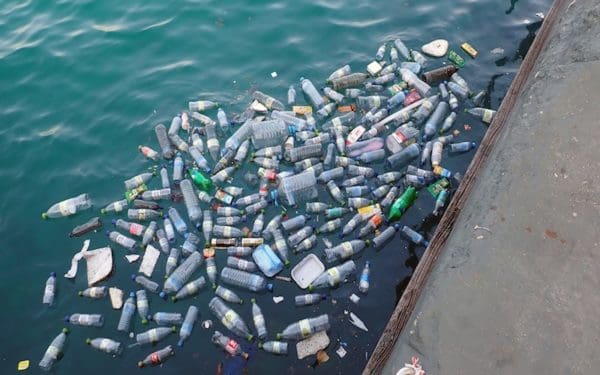Sep 18, 2023
“Single-use plastics are a scourge on our environment and our communities,” said CLF zero waste attorney Mara Shulman. “These products hasten the climate crisis and endanger the health of people and wildlife. Governor Healey’s ban is a great step towards making Massachusetts a leader in fighting the plastics crisis.”
Sep 13, 2023
“It’s time to finally address the plastics crisis in Massachusetts. From modernizing our antiquated beverage container deposit system, to banning single-use plastic bags at checkout, to making producers of plastic packaging responsible for reducing packaging and managing plastic waste at its end of life, there are several pending bills that will take us in the right direction. We stand with our elected officials and pledge to keep up the momentum because there is no time to waste in taking a bite out of waste.”
Jun 28, 2023
“Single-use beverage containers pollute our communities and our planet at every stage of their lives, and the problem is only getting worse,” said CLF Senior Attorney Mara Shulman. “A new bottle bill would go a long way to clean up the scourge of litter in Rhode Island’s communities while ramping up recycling rates across the state. The formation of a study committee is a great first step, but we certainly have more work to do in getting a bottle bill on the books in the next session.”
Mar 08, 2023
The derailment of a train carrying toxic petroleum-based chemicals in East Palestine, Ohio in February is a sad consequence of the fossil fuel industry’s deadly plastics push.
Feb 28, 2023
Dock foam pollution harms wildlife and water quality – that’s why we must take action to ban it in Vermont and regionwide.
Jan 26, 2023
CLF’s Great Bay–Piscataqua Waterkeeper brings together partners and dozens of volunteers on annual cleanup to remove polluting debris from the estuary’s shoreline.
Oct 05, 2022
Why is our ocean overheating? The main is that it is working overtime to protect us. An overheating ocean spells bad news for marine life and humans. But we can help. Here’s ho
May 04, 2022
“Our representatives let us down today,” said CLF attorney Peter Blair. “This effort disguises burning plastic as recycling and will spread toxic pollution into New Hampshire’s communities while keeping single-use plastic in production. Governor Sununu must veto this naked attempt to prop up the fossil fuel industry at the expense of our health.”
Feb 09, 2022
Big Beverage companies drive the global plastic pollution crisis, thanks to the single-use bottles in which they sell their beverages. They also do everything they can to maintain the status quo by sabotaging efforts to reform our recycling systems. That’s why we’re exposing Big Beverage’s playbook – because we can no longer afford to let them avoid responsibility while we drown in plastic pollution.
Feb 09, 2022
“For decades, the beverage industry has done everything in its power to keep our failed recycling systems in place and prevent new solutions,” said Kirstie Pecci, Director of CLF’s Zero Waste Project. “Most bottles and cans in the U.S. still end up buried in landfills, burned in incinerators, or littering our communities. We must hold Big Beverage accountable for the mess it’s made and invest in real solutions for bottle and can recycling.”
